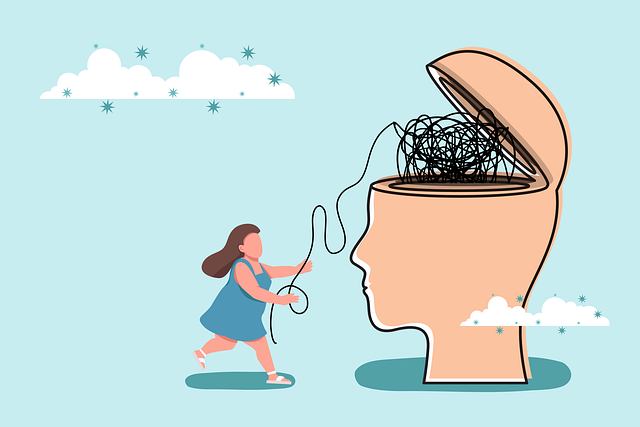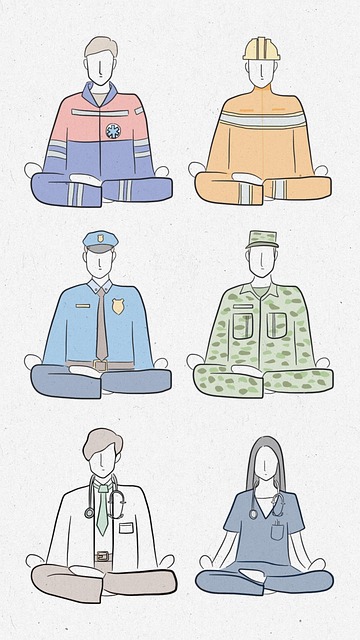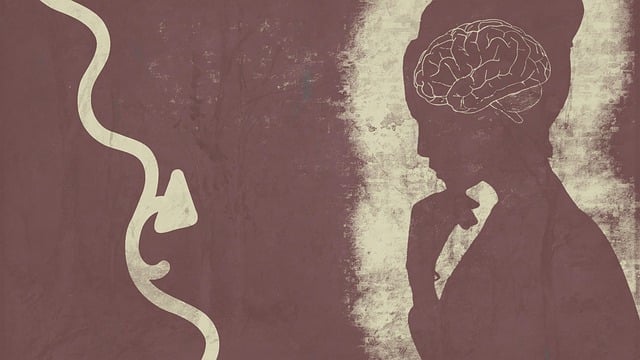Englewood Acceptance and Commitment Therapy (EACT) is an innovative approach to mental well-being, emphasizing acceptance, mindfulness, and action. By integrating techniques like journaling, stress management, and trigger identification, individuals develop coping skills. Healthcare provider training in cultural competency enhances self-care awareness for diverse populations. EACT encourages self-discovery, helping people identify unique physical, emotional, and mental needs. It promotes acceptance of thoughts and emotions, sets value-based goals, and aligns self-care activities with authentic selves, fostering deeper connections and sustainable well-being improvements. Overcoming barriers like busy schedules or societal expectations through evidence-based therapies and structured workshops enables consistent self-care practices.
“Enhance your mental well-being with a focus on self-care practices. This comprehensive guide explores the profound impact of self-care on our mental health, introducing the transformative power of Englewood Acceptance and Commitment Therapy (EACT). Learn how to identify your unique personal needs and integrate EACT techniques for effective self-care routines. Overcome barriers and discover strategies to sustain long-term healthy habits, fostering a balanced and fulfilling life.”
- Understanding Self-Care and Its Impact on Mental Well-being
- Introduction to Englewood Acceptance and Commitment Therapy (EACT)
- Identifying Personal Self-Care Needs and Priorities
- Integrating EACT Techniques for Effective Self-Care Routines
- Overcoming Barriers and Sustaining Long-term Self-Care Habits
Understanding Self-Care and Its Impact on Mental Well-being

Self-care is a holistic practice that involves attending to one’s physical, emotional, and mental needs. It encompasses activities that nurture and sustain an individual’s overall well-being, promoting a sense of balance and resilience in daily life. Understanding self-care is crucial for improving mental health, as it provides individuals with the tools to manage stress, regulate emotions, and cultivate positive mindsets. Englewood Acceptance and Commitment Therapy (ACT), for instance, emphasizes the importance of self-care in fostering mental wellness by encouraging individuals to accept their thoughts and feelings while committing to valued actions.
By integrating coping skills development through practices like Mental Wellness Journaling Exercise Guidance, individuals can enhance their ability to navigate life’s challenges. This involves reflecting on one’s emotions, tracking stress levels, and identifying triggers. Healthcare Provider Cultural Competency Training also plays a significant role in promoting self-care awareness, ensuring that professionals are equipped to offer personalized support to diverse populations. Through these methods, individuals gain valuable insights into their well-being, enabling them to make informed decisions about adopting healthier habits and improving their mental wellness journey.
Introduction to Englewood Acceptance and Commitment Therapy (EACT)

Englewood Acceptance and Commitment Therapy (EACT) is a transformative approach to mental health that encourages individuals to embrace their experiences and commit to valued actions. This therapy is rooted in the principles of mindfulness, acceptance, and psychological flexibility. By learning to observe thoughts and emotions without judgment, EACT helps people develop a deeper understanding of themselves and their behaviors.
EACT goes beyond traditional talk therapy by integrating various techniques, including cognitive restructuring, behavior activation, and mindfulness practices. It focuses on designing personalized Mental Health Education Programs that empower individuals to take control of their lives. Through Public Awareness Campaigns Development, EACT also aims to reduce the stigma around mental health issues and promote Anxiety Relief strategies that are accessible and effective for all.
Identifying Personal Self-Care Needs and Priorities

Identifying your personal self-care needs is a transformative step towards enhancing overall well-being. It involves a journey of self-discovery where one becomes more attuned to their unique physical, emotional, and mental requirements. Through mindfulness practices like Self-Awareness Exercises, individuals can learn to recognize patterns, triggers, and signs of burnout, enabling them to address potential issues proactively. This process is pivotal in preventing Burnout Prevention and maintaining a positive mindset for effective Mood Management.
Englewood Acceptance and Commitment Therapy (ACT) offers valuable tools for this purpose. By encouraging acceptance of thoughts and emotions without judgment, ACT helps individuals set personal values-based goals that drive behavior changes. This approach allows one to prioritize self-care activities that align with their authentic selves, fostering a deeper connection with their needs and leading to sustainable improvements in overall well-being.
Integrating EACT Techniques for Effective Self-Care Routines

Englewood Acceptance and Commitment Therapy (EACT) offers powerful tools to enhance self-care routines and promote mental wellness. By embracing EACT techniques, individuals can develop a more accepting and compassionate relationship with themselves. This therapeutic approach encourages self-reflection and mindfulness, allowing one to recognize and challenge unhelpful thoughts and behaviors.
Integrating EACT into daily practices promotes effective stress reduction methods. Mental wellness journaling exercises guided by EACT principles can help individuals track their emotions, identify triggers, and set meaningful goals. This process fosters personal growth and a deeper understanding of one’s needs, ultimately leading to improved overall well-being. Healthcare Provider Cultural Competency Training can also benefit from these techniques, as they enhance the ability to support clients in developing resilient self-care habits.
Overcoming Barriers and Sustaining Long-term Self-Care Habits

Overcoming barriers is a significant step in adopting and sustaining self-care practices. Many individuals struggle with this aspect due to various reasons such as busy schedules, societal expectations, or fear of vulnerability. However, with the right tools and mindset shifts, long-term self-care habits can be achieved. For instance, engaging in activities that foster mental well-being, like regular exercise, mindfulness practices, or keeping a journal, can help break down barriers by providing clear, achievable goals.
One effective approach is integrating evidence-based therapies into one’s self-care routine. Englewood Acceptance and Commitment Therapy (ACT), for example, empowers individuals to accept their emotions without judgment while committing to actions aligned with personal values. This therapy also includes techniques for stress management and depression prevention, crucial components in any comprehensive risk management planning for mental health professionals. Additionally, participating in structured workshops or organizations focused on stress management can offer support networks and practical tools to overcome barriers, ensuring consistent self-care over time.
Self-care is not just a trend; it’s a vital practice for enhancing mental well-being. By understanding the impact of self-care and exploring therapeutic approaches like Englewood Acceptance and Commitment Therapy (EACT), individuals can identify personalized needs and create meaningful routines. Integrating EACT techniques enables us to overcome barriers and foster sustainable self-care habits, ultimately leading to a more balanced and fulfilling life. Remember that consistent self-care is key to navigating life’s challenges and cultivating resilience.












